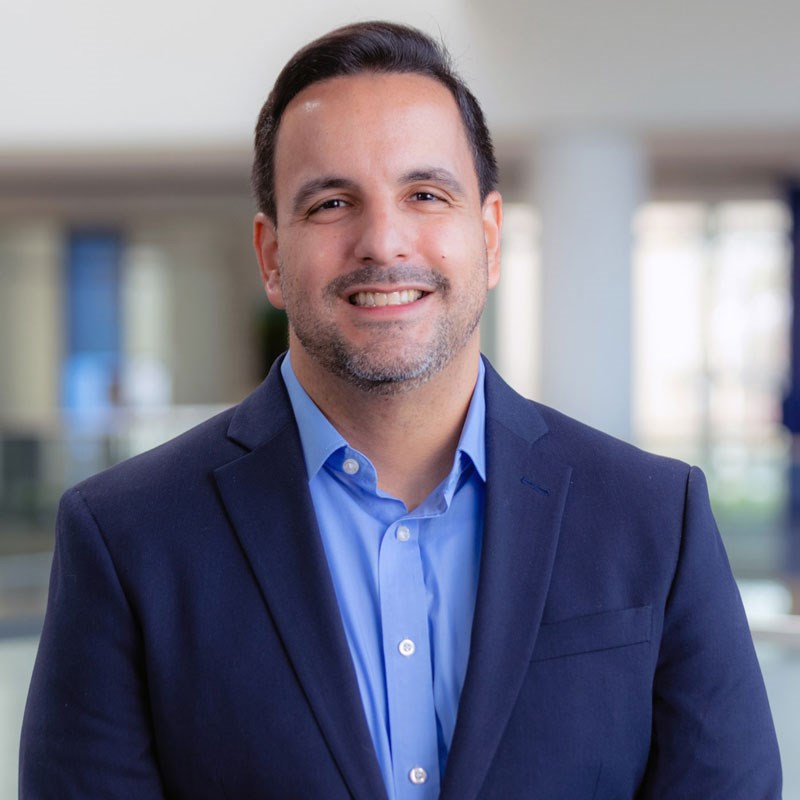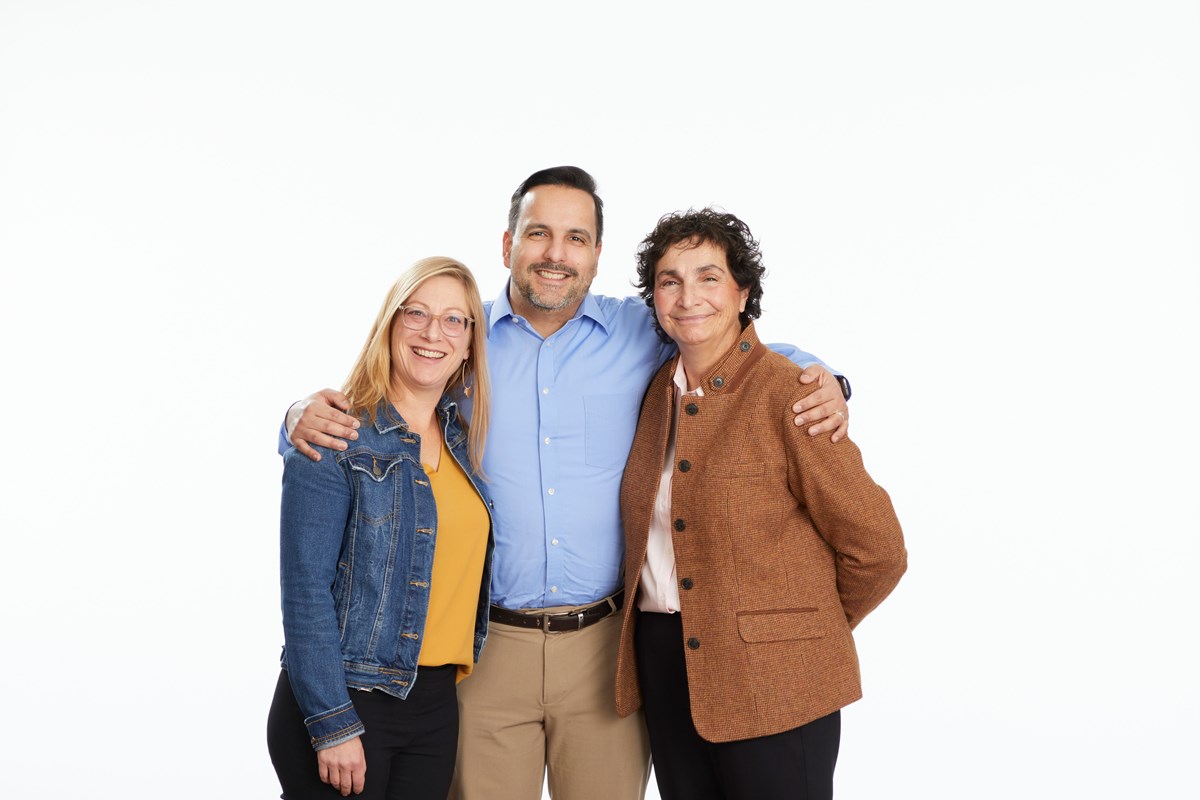David Claudio Applies Engineering Analytics to Public Health

09/01/2024
By Katharine Webster
Industrial Engineering Assoc. Prof. David Claudio is on the front lines of health care delivery, working directly with nurses, doctors and patients to improve public health.
How does he do it? By applying the principles of operations management and “lean manufacturing” to the people and processes involved in medical care. It is called “lean health care,” and Claudio is a respected practitioner in the field, which has become increasingly important as health care costs grow faster than inflation and the U.S. population ages and confronts new infectious diseases.
Claudio’s current project—figuring out how to improve early detection and treatment of breast and cervical cancer among Latinas in Montana— is funded by a $360,000 fellowship from the Robert Wood Johnson Foundation. Claudio loves his work, but he did not start out with a focus on health care.
“I never thought that, as an industrial engineer, I was going to be doing things that are social justice-related and working in public health,” he says.
Claudio studied industrial engineering and then worked for several years in operations management and lean manufacturing. In the early 2000s, when he returned to school at Penn State for a Ph.D., he got excited by the newly emerging discipline of lean health care.
For his dissertation, he analyzed how patients were triaged and the order in which they were seen at two different hospital emergency rooms. He interviewed patients, doctors and nurses, monitored patients’ vital signs, tracked the nurses’ movements and tasks, and developed better protocols to ensure that the most severely ill patients were seen and treated faster.

In his first academic posting at Montana State University in Bozeman, Claudio helped the local hospital redesign its cancer ward from top to bottom, including creating a more predictable system for scheduling patients’ chemotherapy infusions.
In another project, he used the same types of mathematical analyses he had learned to perform in lean manufacturing, “plus the human factor,” to improve working conditions for nurses—and their patients’ health outcomes.
“The nurses were spending only 30% of their time doing bedside assistance; the rest of the time, they were doing computer paperwork,” he says. “I looked at how to reduce walking and interruptions for nurses and the time they spent searching for documents, medications and instructions.”
He has also worked to improve clinics and hospital pre- and post-operative surgical wards, medical wards and intensive care units where “nurses were not hearing alarms going off because there were so many false alarms.”
“Nurses are some of my favorite people,” he says. “They are my preferred population, because they are like the line operators of health services.”
In 2018, Claudio and his family met Montana State Nursing Assoc. Prof. Sally Moyce. Soon, Claudio and Moyce teamed up with Elizabeth Aghbashian, a public health professional in Gallatin County, Montana, for community-based research to improve health care access for low-income Latinos.
They began their community outreach by sponsoring a social event “with a little health care information” at a Catholic church that celebrates Mass in Spanish once a month. They followed up with a health fair at the church and then recruited a community advisory board. “Instead of telling them, ‘This is what you need,’ we started exploring, ‘What are the problems in the community?’” Claudio says.
Since then, their research has tackled everything from attitudes among Latinos toward the COVID-19 pandemic to the community’s use of free cancer screenings. Claudio’s wife, UML Industrial Engineering Assoc. Teaching Prof. Maria Velázquez, also contributes to some of the group’s research projects and papers.
Claudio, Moyce and Aghbashian won the three-year, $360,000 fellowship from the Robert Wood Johnson Foundation to focus on improving the use of free mammograms and cervical cancer screenings, follow-up and treatment among Latinas.
First, they had to quantify the problem, Claudio says. Among non-Hispanic women, 96% of women who began the testing process completed it and then followed up by getting their results and seeing a doctor, the researchers found. Among Hispanic and other Latina women, only 38% completed the process and followed up.
Then, the team worked with its community advisory board to understand the most common barriers to accessing care, which include a lack of transportation for follow-up appointments, trouble understanding and filling out patient forms or setting up online medical accounts, and the need for referrals to see specialists—when only 20% of Latinas in the state even have a primary care provider.
Now in the third and final year of their fellowship, Claudio, Moyce and Aghbashian are analyzing policies at the city, county and state levels so that Montana’s growing Latino community can advocate for changes, such as laws and policies that require the provision of translation services and forms in Spanish.
“I never thought that, as an industrial engineer, I was going to be doing things that are social justice-related and working in public health.” -Assoc. Prof. David Claudio
Along the way, the research team has received advice and support from the Robert Wood Johnson Foundation’s team of advisors. Claudio’s group also meets three times a year with the other teams in their Interdisciplinary Leaders Research Program Fellowship cohort, all of whom are tasked with dismantling systemic racism in health care, he says.
Claudio came to UMass Lowell in fall 2021 to direct the Industrial Engineering Program and advise the student chapter of the Society of Hispanic Professional Engineers—he won the Student Organization Faculty Advisor of the Year award for 2023-24—but he has returned to Montana periodically to continue the work, and he will soon be looking for opportunities to improve health care closer to Lowell.
“I enjoy what I’m doing,” he says. “It’s not just for the discovery part, but for knowing that I’m doing something important that can positively impact people’s lives.”
